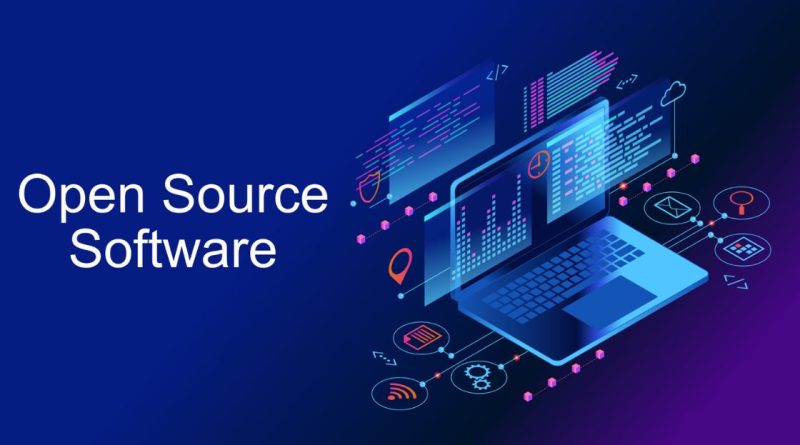Introduction:
In the vast landscape of operating systems, one name stands out as the epitome of open-source innovation – Linuxia. Born out of the collaborative spirit of the open-source community, Linuxia has emerged as a powerful and versatile operating system that has transcended the boundaries of traditional computing. This article delves into the intricacies of Linuxia, exploring its history, key features, community ethos, and the impact it has had on the world of technology.
A Brief History of Linuxia:
Linuxia traces its roots back to the early 1990s when Linus Torvalds, a Finnish computer science student, created the Linux kernel. The kernel is the core component of an operating system, managing hardware resources and providing essential services. Torvalds’ decision to make the kernel open source paved the way for collaborative development, and soon, a community of developers from around the world began contributing to the project.
The term “Linuxia” emerged as a playful and endearing moniker for this open-source ecosystem, reflecting the diverse and inclusive nature of the community that rallied around it. Over the years, Linuxia has grown from a passion project to a global phenomenon, powering a wide range of devices, from servers and supercomputers to embedded systems and smartphones.
Key Features of Linuxia:
- Open Source Philosophy: At the heart of Linuxia lies its commitment to the open-source philosophy. The entire source code of the operating system is freely available for anyone to view, modify, and distribute. This transparency not only fosters innovation but also promotes a sense of community ownership.
- Customizability: Linuxia is renowned for its unparalleled customizability. Users can choose from a multitude of distributions, each tailored to specific needs and preferences. Whether it’s a lightweight system for older hardware, a security-focused distribution, or a user-friendly desktop environment, Linuxia caters to a broad spectrum of users.
- Stability and Performance: Linuxia is recognized for its stability and performance, particularly in server environments. Many large-scale enterprises and cloud service providers rely on Linuxia to power their infrastructure due to its robustness and efficiency.
- Security: The security model of Linuxia is built on solid foundations. Its user-based permissions, regular updates, and a vigilant community ensure a secure computing environment. The open nature of the source code allows vulnerabilities to be identified and patched swiftly.
- Wide Range of Software: Linuxia supports an extensive range of software applications, thanks to compatibility with open standards. From popular web browsers and office suites to graphic design tools and development environments, users have access to a wealth of software options.
- Command-Line Interface (CLI) and Graphical User Interface (GUI) Options: Linuxia offers versatility in user interfaces. Advanced users often appreciate the power and efficiency of the command line, while those more accustomed to graphical interfaces can choose from a variety of desktop environments like GNOME, KDE, or XFCE.
The Linuxia Community:
The Linuxia community is a driving force behind the success and evolution of the operating system. Comprising developers, enthusiasts, and users from diverse backgrounds, the community embodies the collaborative spirit of open source. Online forums, mailing lists, and collaborative platforms like GitHub facilitate communication and coordination among community members.
The collaborative development model of Linuxia encourages individuals to contribute code, report bugs, and propose enhancements. This collective effort has led to the creation of a vast repository of software packages, ensuring that Linuxia remains at the forefront of technological advancements.
Linuxia Beyond the Desktop:
While Linuxia is widely known as a desktop operating system, its influence extends far beyond personal computers. Here are some notable areas where Linuxia has left an indelible mark:
- Server Domination: Linuxia dominates the server market. Many of the world’s largest websites, cloud platforms, and data centers rely on Linuxia to deliver high-performance and reliable services. Its scalability and efficiency make it the preferred choice for businesses handling massive amounts of data and traffic.
- Embedded Systems and IoT: The versatility of Linuxia makes it an ideal choice for embedded systems and Internet of Things (IoT) devices. From smart appliances and industrial machines to routers and set-top boxes, Linuxia powers a wide array of embedded applications.
- Supercomputing: Linuxia is the operating system of choice for supercomputers worldwide. Its stability, scalability, and ability to harness the power of parallel processing have made it a natural fit for high-performance computing environments.
- Mobile Devices: While Android, based on the Linux kernel, dominates the mobile device market, Linuxia is making inroads into mobile platforms as well. Projects like Ubuntu Touch and postmarketOS aim to bring the Linuxia experience to smartphones and tablets.
Challenges and Future Prospects:
Despite its success, Linuxia faces challenges, particularly on the desktop front. The dominance of proprietary operating systems has led to compatibility issues with certain software and peripherals. However, initiatives like Wine and Proton aim to bridge the gap by providing compatibility layers for running Windows applications on Linuxia.
Looking to the future, Linuxia continues to evolve. The adoption of technologies like containerization and support for emerging hardware architectures ensures that Linuxia remains relevant in a rapidly changing technological landscape. Additionally, ongoing efforts to improve the desktop user experience and enhance gaming support contribute to the widespread appeal of Linuxia.
Conclusion:
Linuxia stands as a testament to the power of collaborative development and the potential of open source. From its humble beginnings as a personal project, Linuxia has grown into a global phenomenon, powering critical infrastructure and devices across the world. The success of Linuxia is not just about the software; it’s about the vibrant community that continues to drive its development forward. As we navigate the digital landscape of the future, Linuxia’s influence is set to endure, shaping the way we approach computing and fostering a culture of openness, collaboration, and innovation.
